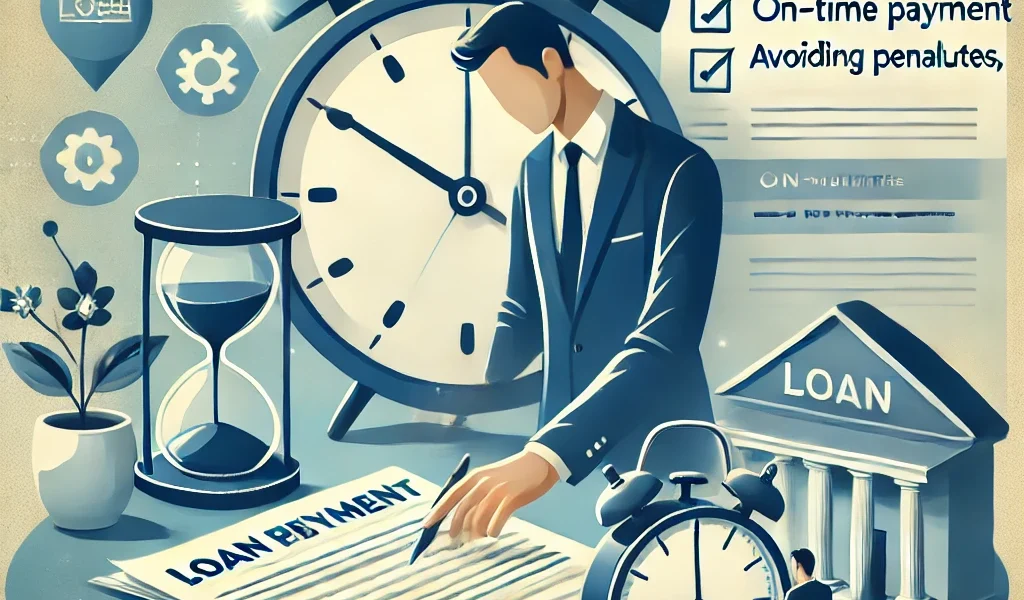Introduction
Loan repayment is a crucial aspect of borrowing that every borrower must manage effectively to avoid additional costs. Late fees and penalties can significantly increase the overall cost of a loan, making it essential to understand the repayment policies set by lenders.
This article explores the importance of loan repayment policies, how late fees and penalties work, and the best strategies to ensure timely payments while avoiding unnecessary charges.
Understanding Loan Repayment Policies
Loan repayment policies vary depending on the type of loan and the lender’s terms. However, most policies include the following aspects:
- Repayment Schedule – Specifies the due dates for payments (e.g., monthly, biweekly, or quarterly).
- Grace Period – Some lenders offer a short grace period after the due date before imposing penalties.
- Late Fees – A fixed amount or percentage charged when a payment is not made on time.
- Prepayment Penalties – Some loans have fees for paying off the loan early.
- Interest Accrual – Interest may continue accruing on missed payments, increasing the total repayment amount.
- Default Consequences – Repeated missed payments can lead to credit score damage and legal actions.
How Late Fees and Penalties Work
1. Late Payment Fees
Late payment fees vary based on the type of loan and lender policies. They can be a fixed amount or a percentage of the missed payment.
Example:
- Credit card late fee: $25–$40 per missed payment.
- Mortgage late fee: 3%–5% of the overdue amount.
2. Increased Interest Rates
Some loans have penalty interest rates, meaning a missed payment could result in a higher interest rate, increasing overall loan costs.
3. Negative Impact on Credit Score
Lenders report late payments to credit bureaus, and a history of missed payments can significantly lower a borrower’s credit score.
4. Legal Consequences and Collection Actions
For secured loans like mortgages and auto loans, continuous missed payments can lead to foreclosure or repossession. For unsecured loans, lenders may pursue legal actions or involve debt collection agencies.
Strategies to Avoid Late Fees and Penalties
1. Set Up Automatic Payments
Most lenders offer auto-debit services, ensuring timely payments directly from a bank account. This minimizes the risk of forgetting due dates.
2. Use Payment Reminders
Borrowers can set calendar reminders, use banking apps, or enable SMS/email alerts from lenders to stay on track with payments.
3. Maintain an Emergency Fund
Having a financial cushion can help borrowers cover loan payments in case of unexpected expenses or financial hardships.
4. Pay More Than the Minimum Due
For credit card and personal loans, paying more than the minimum amount due can help reduce the principal faster and avoid high-interest accumulation.
5. Understand the Grace Period
Many loans provide a grace period (e.g., 10–15 days after the due date) before charging a late fee. Borrowers should confirm this period with their lender and plan accordingly.
6. Communicate with Your Lender
If facing financial difficulties, borrowers should contact their lender before missing a payment. Some lenders offer hardship programs or temporary forbearance.
7. Refinance or Consolidate Loans
Borrowers struggling with multiple loans can explore refinancing options or debt consolidation to secure lower interest rates and more manageable repayment terms.
Conclusion
Avoiding late fees and penalties requires a proactive approach to loan repayment. By understanding lender policies, setting up automated payments, maintaining financial discipline, and seeking assistance when necessary, borrowers can effectively manage their loans while minimizing additional costs.




